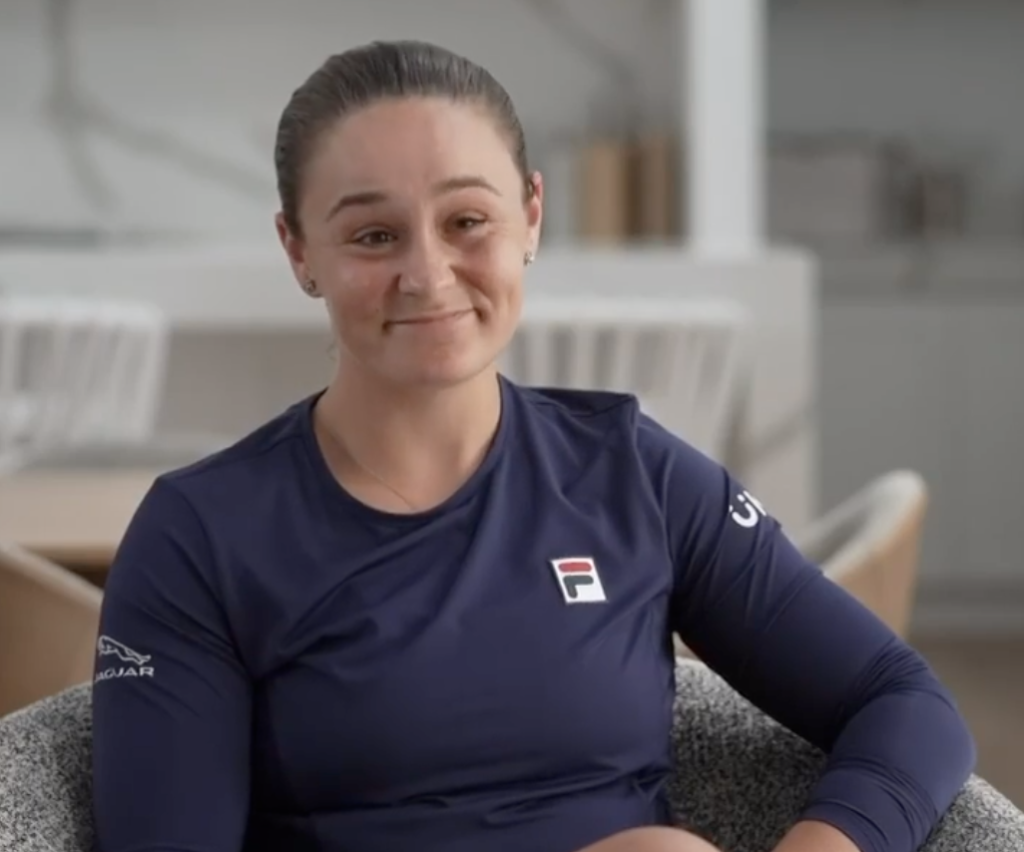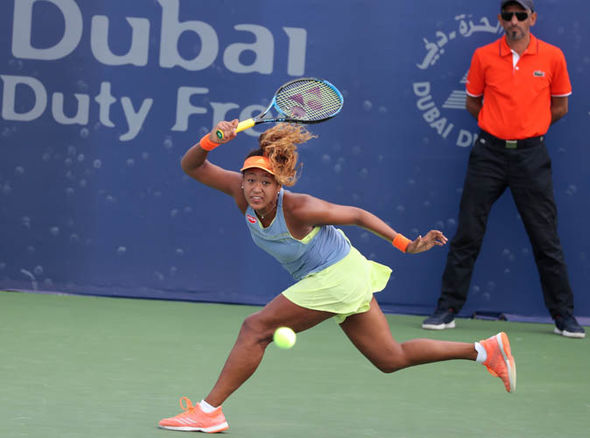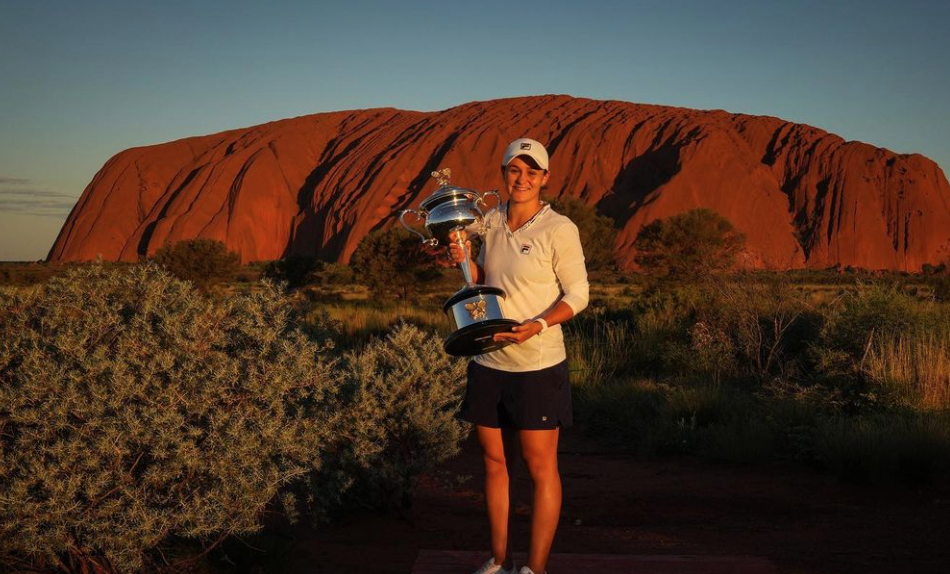Leaving $150m Behind: The Story Of Barty’s Bombshell Retirement Comes To Light
March 28, 2022
Olympic Games and major events adviser, Michael Pirrie, outlines the changing of the guard underway at the top of women’s tennis following Ash Barty’s shock resignation, and why her sudden departure has had such impact.
Ash Barty spent her first day in retirement away from elite tennis ironically courting questions about her departure from the sport that made her an international household name. The shockwaves from Barty’s unheralded withdrawal have prompted a rapid realignment of stars in the universe of women’s tennis.
Following weekend wins at the Miami Open, Poland’s Iga Swiatek is set to replace Barty as number one in the world when new rankings are announced next month. Swiatek will become just the 28th woman to head the WTA rankings – and the first from Poland.
“Barty’s decision to step away from fame and fortune continues to confound and confront the sporting world.”
The Pole’s ascension will be a much needed symbol of hope for her nation which has inspired the world with its unending kindness and generosity in welcoming and caring for more than two million refugees from Ukraine cities and neighbourhoods almost bombed out of existence by Russia.
While Swiatek’s pending number one ranking is part of the natural order of succession, Barty’s decision to step away from fame and fortune continues to confound and confront the sporting world.
Barty had reached the summit of her sport, she looked around and found there was nothing left to conquer. Her withdrawal has created more news worldwide than the departure of most Fortune 500 chief executives or senior government ministers.
She was upbeat and confident as she spoke to media for the first time since her bombshell announcement, while unshakeable in her belief that retirement was right for her, some responses generated more questions than answers.
The door to tennis may be firmly closed but not necessarily padlocked. The superstar was adamant there were ‘no regrets, no secrets and no conspiracies.’ “I am not hiding anything. I am an open book,” Barty told media in her home capital city of Brisbane.

The mystery behind the sudden enigmatic resignation of the leading light in women’s tennis has also started to emerge. Barty and coach Craig Tyzzer provided insights into what prompted the retirement that rocked world sport. She indicated her Wimbledon win last year and recent Australian Open victory were pivotal in the decision making process.
Wimbledon, the scene of Barty’s greatest triumph, surprisingly, may have marked the beginning of the end.
“After Wimbledon my perspective changed a lot,” Barty said, “and there was this beautiful challenge of trying to play the Australian Open and trying to win an Australian Open, which was always another goal of mine…”
Barty is a modern day sporting phenomenon and her resignation had global impact. She has freakish visual perception and understanding of space, time and positioning on the tennis court and when to best deploy her delicate but devastating trademark shots.
These included a mesmerising sliced backhand conjured from the list of endangered tennis shots that Barty reinvented as her own. She also had great depth of vision into the game of life as well as tennis and refused to be become a slave to the expectations of others about her career goals.
“Barty’s Australian Open win was the most important on home soil for Australia and indigenous communities since her Aboriginal compatriot Catherine Freeman.”
While there were few clues to Barty’s pending retirement, her long wave goodbye to crowds at the Australian Open in January was a missed sign.
Barty’s Australian Open win was the most important on home soil for Australia and indigenous communities since her Aboriginal compatriot Catherine Freeman surged down the home stretch at Homebush Stadium to win the 400 metres sprint at the Sydney 2000 Olympic Games.
Like Freeman’s historic achievement, the impact of Barty’s knockout win was felt coast to coast across the vast island continent, uniting Australia and communities of all race, faith and backgrounds.
Australia’s dream of a national player claiming the home grand slam title again had been realised after decades of disappointment. The crushing pressure from an expectant sporting nation that had overwhelmed previous potential local champions was lifted. Australia’s aspirations had been realised in the most spectacular fashion, with Barty not losing a set on her way to the title.
Barty was almost floating on the court as she turned and waved to every section of the Rod Laver Arena crowd. Fans waved back, unknowingly, for the last time as Barty took what were to be her final farewells following the euphoric victory.
“By walking away at the height of her powers Barty has also walked away from an estimated potential $150 million in projected career earnings and sponsorship.”
The Barty Party was over. There would be no encores. This was Game, Set and Match for the championships and for the champion too. Tributes have continued for Barty following her unprecedented announcement.
“I really admired her for how hard she worked and just how nice she was to everyone,” said Japanese superstar Naomi Osaka, herself a two time Australian Open winner. Barty, just 25, has emerged as one of the most influential and authentic sports stars of recent times.
She has also emerged as an unexpected disruptor and non-conformist in contemporary sport. By walking away at the height of her powers Barty has also walked away from an estimated potential $150 million in projected career earnings and sponsorship.
I doing so, Barty has disrupted the career and business marketing model for modern day sporting stars of success driving more and more success despite the toll involved. This was never about being number one in the world, according to Team Barty but being the best she could be.
That was better than almost anyone else in tennis in these uncertain times. Barty’s withdrawal is arguably the biggest shock in world tennis since Swede Bjorn Borg suddenly retired as one of the best players of his generation, aged just 26.

Her retirement provides a new way of looking at sporting success. It also provides perspective and focus after legendary greatest of all time US gymnast Simone Biles retired from events at the Tokyo Olympics.
Commenting on Barty, Osaka said she thought it was “cool to, like, leave as you’re No 1; you feel like you have nothing left to prove.”
Barty saved her best to last.
If Wimbledon was a personal dream, winning the Australian Open was like a parting gift for her nation, according to her coach. The unique circumstances of Barty’s tennis journey have made a deep impression on sport. And it may not yet be over.
While Barty’s parting retirement may have dashed hopes that an extended injury free tennis career might have seen her compete at the Brisbane 2032 Olympic Games, other possibilities may be in play. As a highly gifted golfer whose technique has been applauded by Tiger Woods and others, Barty still has time to prepare in another Olympic sport in 2032.
Michael Pirrie is an international communications and Olympic Games advisor and commentator who has worked on several major international sporting events and projects. These include the London 2012 Olympic Games as Executive Advisor to organising committee chair, Seb Coe.



